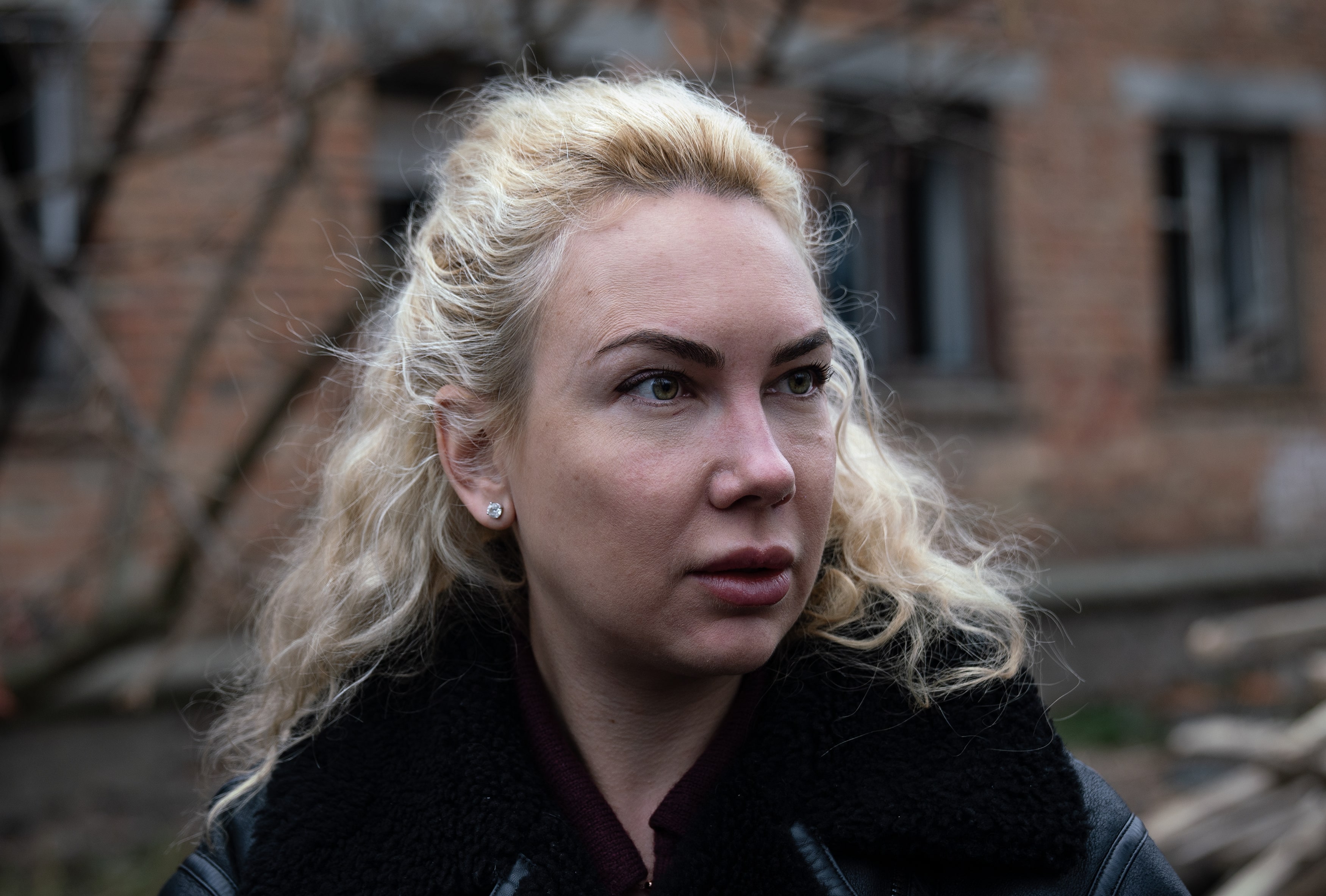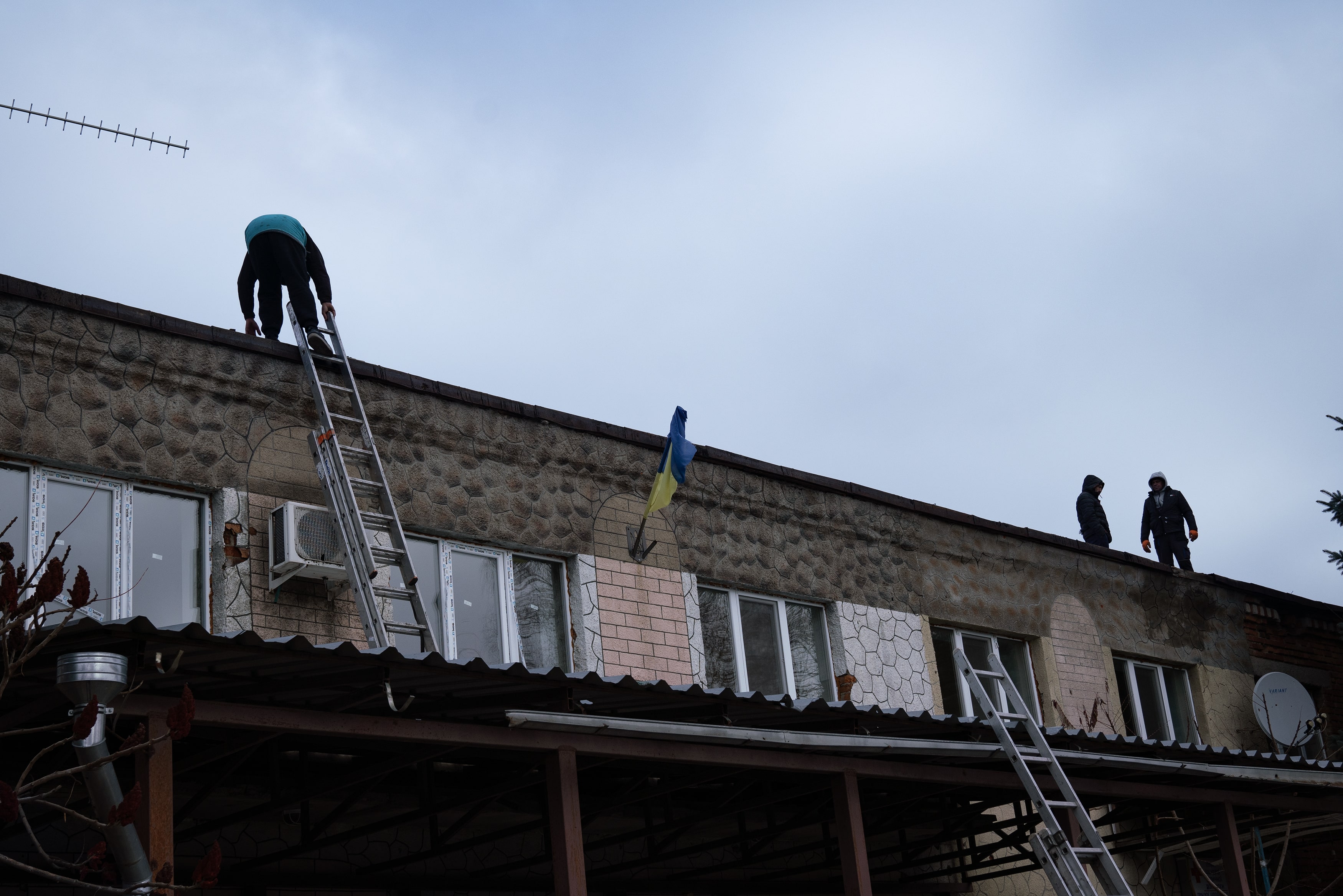 “When people see that something is being done every day, they feel motivated to stay, convinced that more will return.”
“When people see that something is being done every day, they feel motivated to stay, convinced that more will return.”
Before the invasion, Maria was a university lecturer, training new therapists after their internships and working at Kharkiv’s cardiology clinic, where she had studied general medicine. The war upended her life: her six-year-old son attended kindergarten for only a short time before schools were shut down for security reasons. With the city under attack, Maria relocated to Kyiv, while the rest of her family remained in Kharkiv. Then, in February 2023, she made the decision to return: “Kharkiv is my home. I felt the need to be there.”
Today, she leads the Dergachi Healthcare Center in Kharkiv Oblast, overseeing a team of doctors and nurses who provide daily care in a setting where the ordinary has turned into an emergency. Here, war has not only brought wounds and trauma, it has also made managing common illnesses incredibly difficult. A neglected flu can become dangerous, untreated diabetes leads to irreversible complications, and an asthma attack without medication can be fatal.
Maria is part of a project implemented by WeWorld and funded by the Italian Agency for Development Cooperation (AICS) under the Emergency Initiative for the Population Affected by the Conflict in Ukraine and Neighboring Countries (AID 012832). This program, through over 26 projects and 100 partners, provides assistance to one million people in Ukraine and Moldova. AICS support has strengthened the region’s healthcare system: the Dergachi hospital has adopted the WASH FIT (Water and Sanitation for Health Facility Improvement Tool) methodology, while the rehabilitation of the Slatino village clinic is underway to ensure access to primary healthcare.
The needs remain immense. Mobile teams travel through the most isolated areas to reach patients, often without basic safety conditions. The Dergachi hospital has become acrucial reference point for surrounding villages, where many have sought refuge since the war broke out. Yet, many—especially the elderly—have chosen to stay. “We do everything possible to reach everyone. When people see that something is being built every day, they find the strength to stay. And they believe that others will return.”
Maria draws inspiration from the determination of her colleagues, who, like her, have chosen not to abandon their roles. Among them is the director of a clinic in Nova Kozacha, which was bombed by Russian troops in December 2023. The building was severely damaged, forcing the staff to evacuate, but he refused to give up. Without a clinic to receive patients, he walked up to 25 km every day to provide medical care in villages near the Russian border—areas where around 800 people still await treatment.
Maria does not seek recognition. She knows that every visit, every delivered medication, every patient reached makes a difference. In a fragile healthcare system, resistance is not just survival, it is keeping essential services from collapsing.
In a reality where everything is crumbling—homes, certainties, connections—healing also means rebuilding. Every act, every treatment, every form of assistance is a thread that holds the community together, preventing it from unraveling completely.
